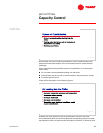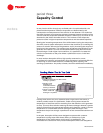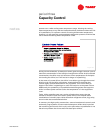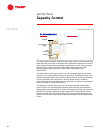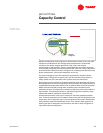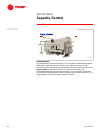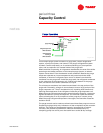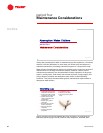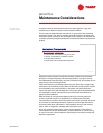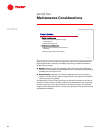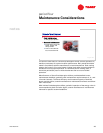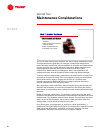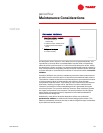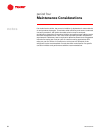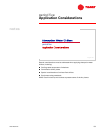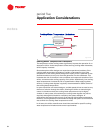
TRG-TRC011-EN 47
period four
Maintenance Considerations
notes
condenser inlet and outlet temperatures; and purge operation. Logs are a
valuable tool for determining the onset of system problems.
This data may be obtained either manually or in conjunction with a building
automation system. The chiller controller should be capable of providing this
information quickly and easily. An automated control system is an efficient way
to identify operating changes and schedule maintenance before they become a
problem.
Absorption chillers typically include the following mechanical components:
pump(s) to circulate refrigerant and absorbent solution, a purge to remove
noncondensables from the chiller, a burner (if directly-fired), and a steam or hot
water control valve (if indirectly-fired).
Chiller manufacturers use different types of pumps. Some use a single pump,
while others use individual pumps. Some use hermetic pumps that are cooled
and lubricated by the pumped solution, and others use pumps with open
motors that require an external shaft seal. The pumps should be disassembled
and inspected at routine intervals. Be sure to consult the manufacturer for
specific recommendations.
With the advent of microprocessor-based controls, the control panel and
auxiliary controllers require no recalibration or maintenance. Remotely-
mounted electronic sensors send information to the chiller controller, which can
be connected to a building automation system to communicate information
and allow system-level optimization. These systems can notify the operator
with an alarm or diagnostic message when a problem occurs.
As for any mechanical equipment, a daily visual inspection of the chiller is
recommended to look for condensation, loosened electrical or control wiring,
or signs of corrosion. Special attention should be given to safety controls and
electrical components.
▲
◆ Pump teardown and inspection every 5 to 10 years
◆ Controls: no maintenance or calibration required
◆ Visually inspect overall unit
◆ Inspect safety controls and electrical components
Figure 56



